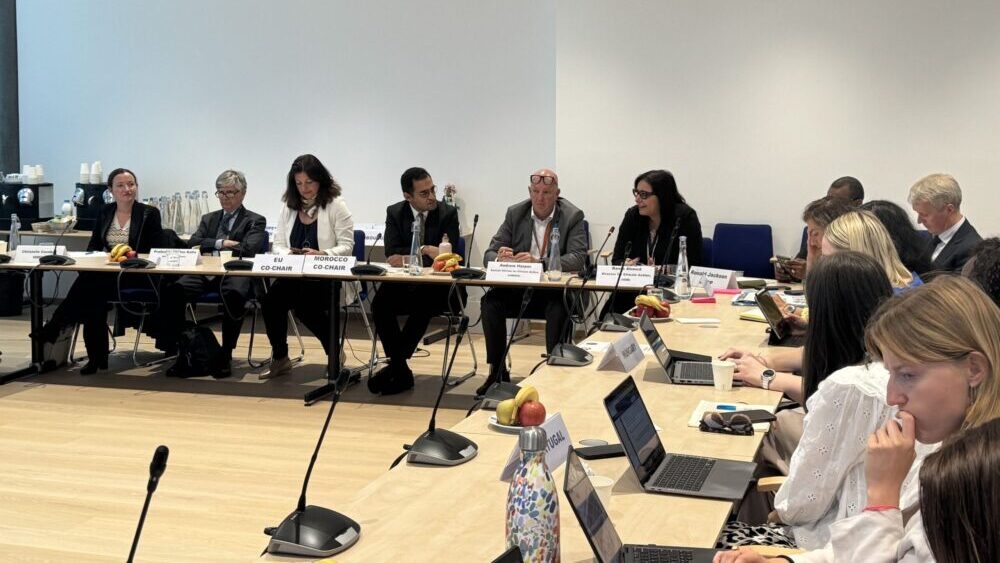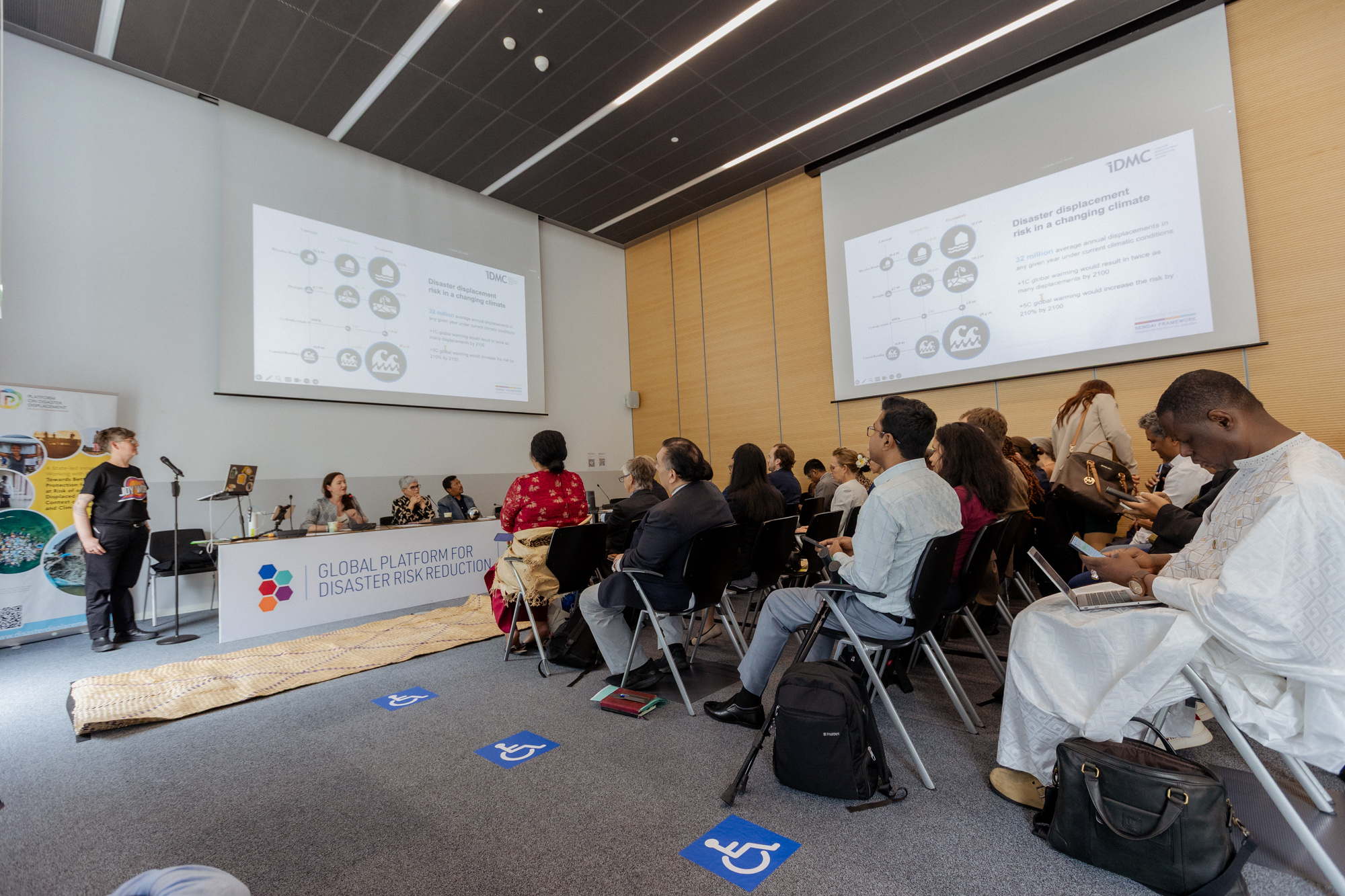UN Agencies, IGAD Secretariat Launch Regional Initiative to Address Migration and Climate Change in East Africa
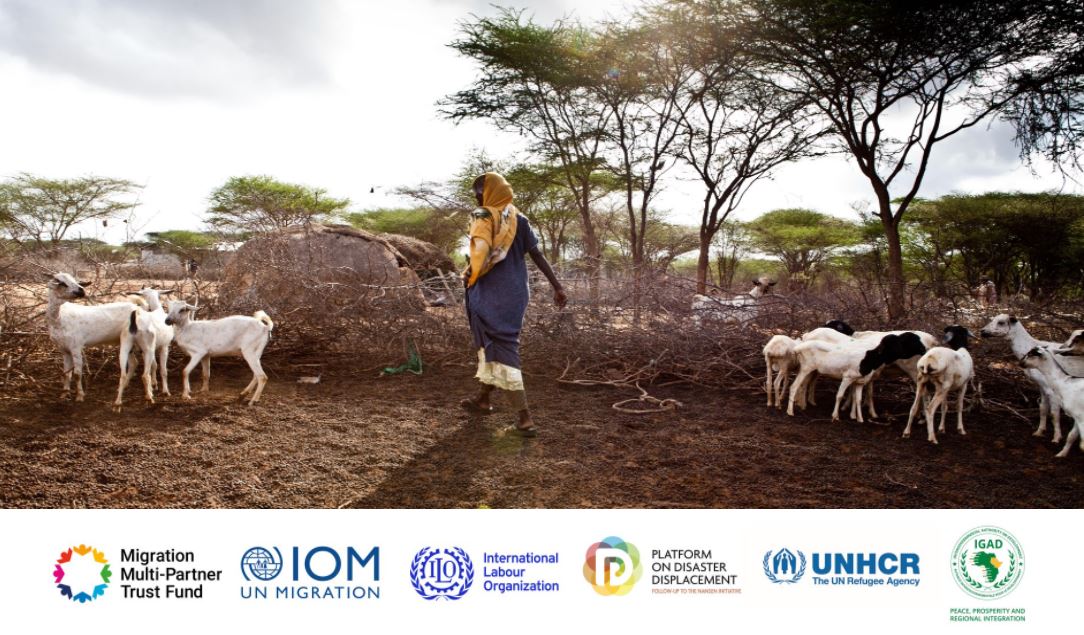
Nairobi, 25 May 2021 – United Nations agencies and the Intergovernmental Authority on Development (IGAD) Secretariat launched on 25 May the first Joint Programme in the East and Horn of Africa, “Addressing drivers and facilitating safe, orderly and regular migration in the context of disasters and climate change in the IGAD region.”
The USD 2.15 million programme, funded by the Migration Multi-Partner Trust Fund Office, will run for 24 months and will cover the seven IGAD Member States, including Djibouti, Ethiopia, Kenya, Somalia, South Sudan, Sudan and Uganda.
The IGAD region is one of the most diverse regions in the world, including areas of economic growth and investment, as well as areas prone to violent conflict, political instability, humanitarian crises, and disasters linked to the adverse effects of climate change.
Severe droughts, floods, landslides, earthquakes, and tropical cyclones, as well as slow-onset climate change events and processes, such as sea level rise, environmental degradation, and changing rainfall patterns, are present in the region. Considered one of the most vulnerable regions to climate change on the African continent, it is also home to more than 230 million people whose livelihoods and income are predominantly linked to agriculture.
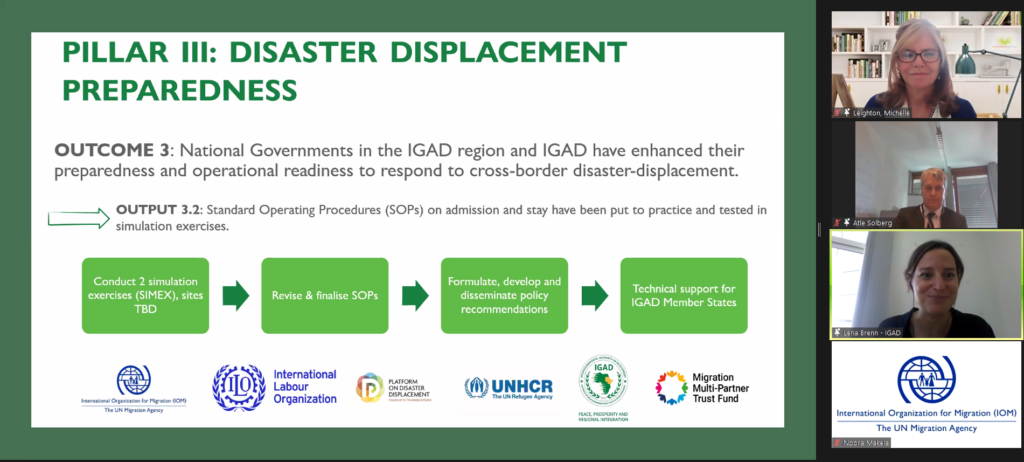 These types of disasters often compel people to leave their homes in search of a safer, and more prosperous life elsewhere – usually within their own countries or in neighbouring countries. However, individual migration decisions are often based on a combination of environmental and other economic, political, and social factors.
These types of disasters often compel people to leave their homes in search of a safer, and more prosperous life elsewhere – usually within their own countries or in neighbouring countries. However, individual migration decisions are often based on a combination of environmental and other economic, political, and social factors.
The International Organization for Migration (IOM), the International Labour Organization (ILO), the Platform on Disaster Displacement (PDD) hosted under United Nations Office for Project Services (UNOPS), the United Nations High Commissioner for Refugees (UNHCR), together with the IGAD Secretariat including the IGAD Climate Prediction and Application Centre (ICPAC), various government entities and other partners, are coming together through this Joint Programme to tackle the adverse impacts of climate change on human mobility.
“For a region like IGAD, where a large part of the population is highly dependent on natural resources for their economic survival, the effect of climate change on livelihoods is likely to be a critical factor in migration decisions. It becomes obvious then, that if we do not support migrants with access to pathways for safe and regular migration, they are left with few options but to take irregular pathways, even though the associated costs and security risks are high,” says Mohammed Abdiker, Regional Director, IOM Regional Office for East and Horn of Africa.
In line with the vision and guiding principles of the Global Compact for Safe, Orderly and Regular Migration (GCM), this initiative will help facilitate pathways for regular migration in the IGAD region and minimize displacement risk for people compelled to move in the context of climate change, environmental degradation and disasters.
The implementation of planned and well-managed migration policies can positively contribute to development and provide protection for people on the move. The programme will support regional and national migration governance, as it relates to disasters, the adverse impacts of climate change and environmental degradation. This will be done through different actions that each address the relevant objectives of the GCM and contribute to the implementation of other relevant international instruments, notably Target 10.7 under SDG 10, the 2015 Paris Climate Change Agreement under the United Nation Framework Convention on Climate Change (UNFCCC) and the Sendai Framework for Disaster Risk Reduction 2015-2030.
Designed to build upon ongoing work, programmes and action plans of the partners, this Joint Programme supports existing global policies and frameworks that address displacement related to the adverse impacts of climate change.
For more information contact:
IOM East and Horn of Africa: Lisa Lim Ah Ken, IOM Regional Migration Environment and Climate Change Thematic Specialist for East and Horn of Africa, llimahken@iom.int
IOM East and Horn of Africa: Noora Makela, IOM Regional Monitoring and Evaluation Officer, nkmakela@iom.int
This publication was produced with the financial support of the Migration Multi-Partner Trust Fund. Its contents are the sole responsibility of the International Organization for Migration and do not necessarily reflect the views of the Fund.
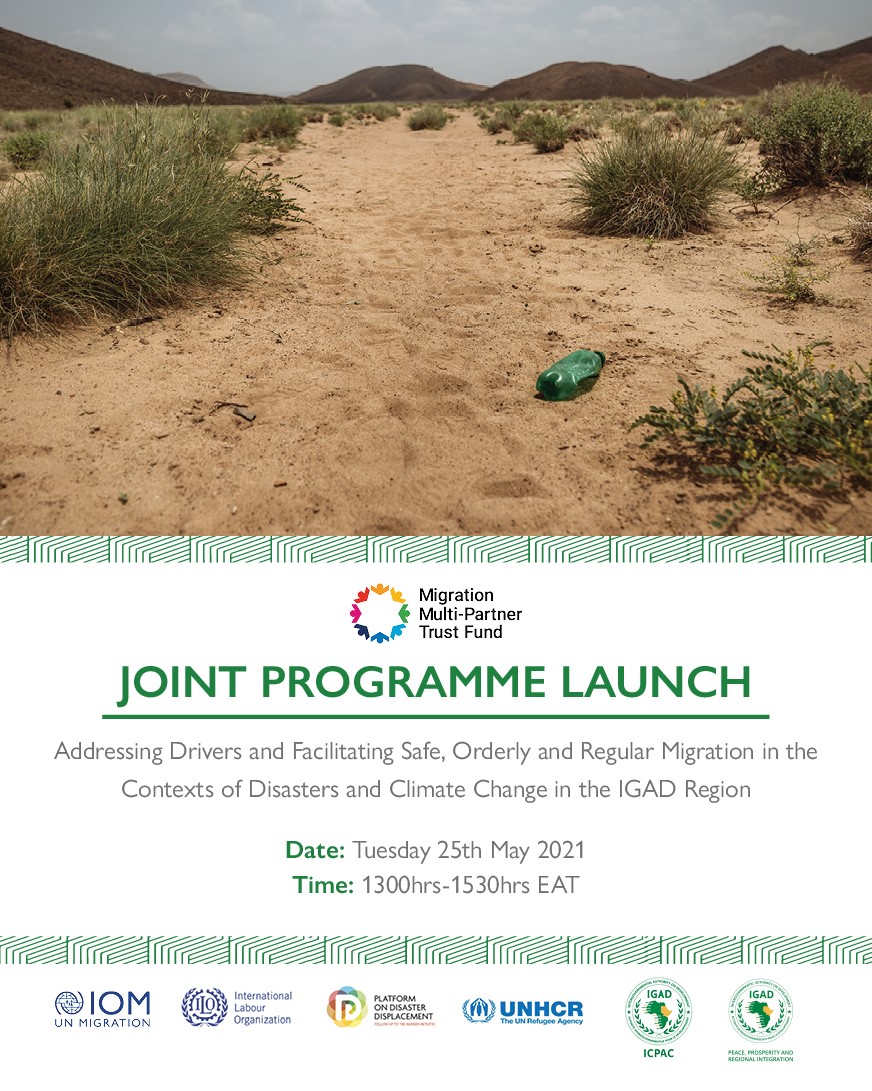
Useful Links
Learn more about our partners, IOM, ILO, IGAD, UNHCR
Learn more about the Migration Multi-Partner Trust Fund
Learn more about the Migration Multi-Partner Trust Fund Joint-Programme
 Loading...
Loading...
Learn more about PDD’s work in our Workplan 2019-2022:
